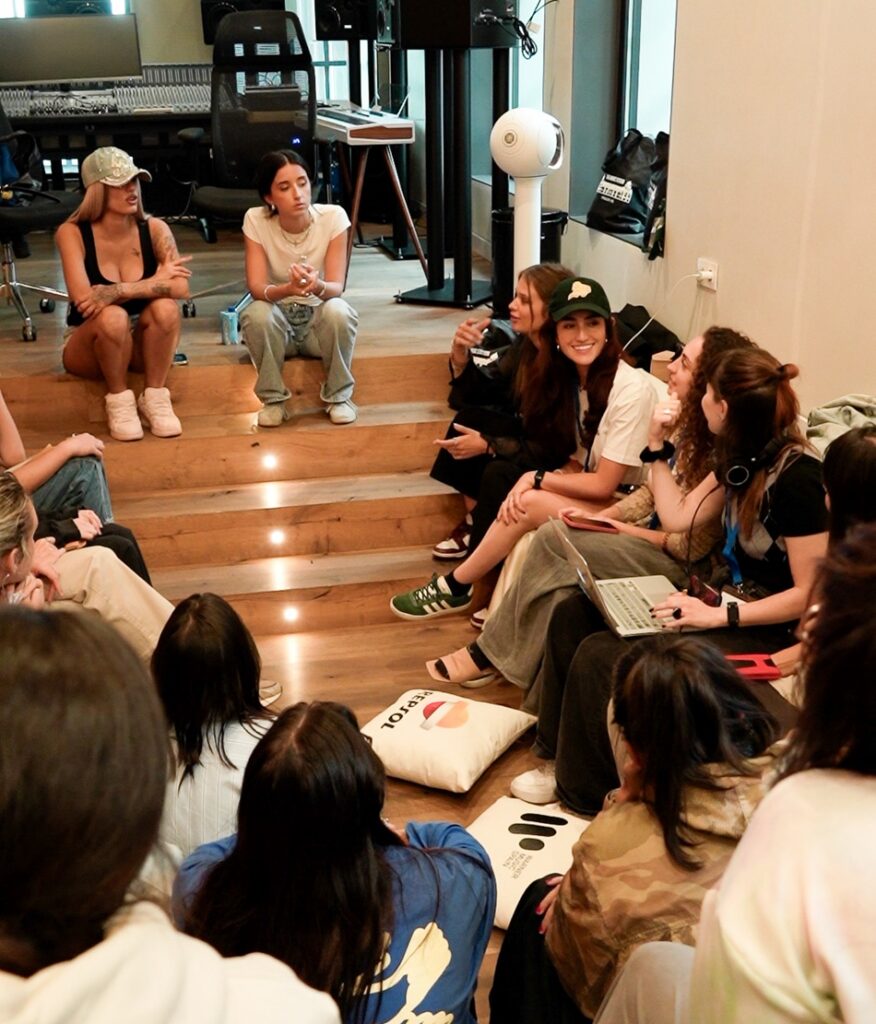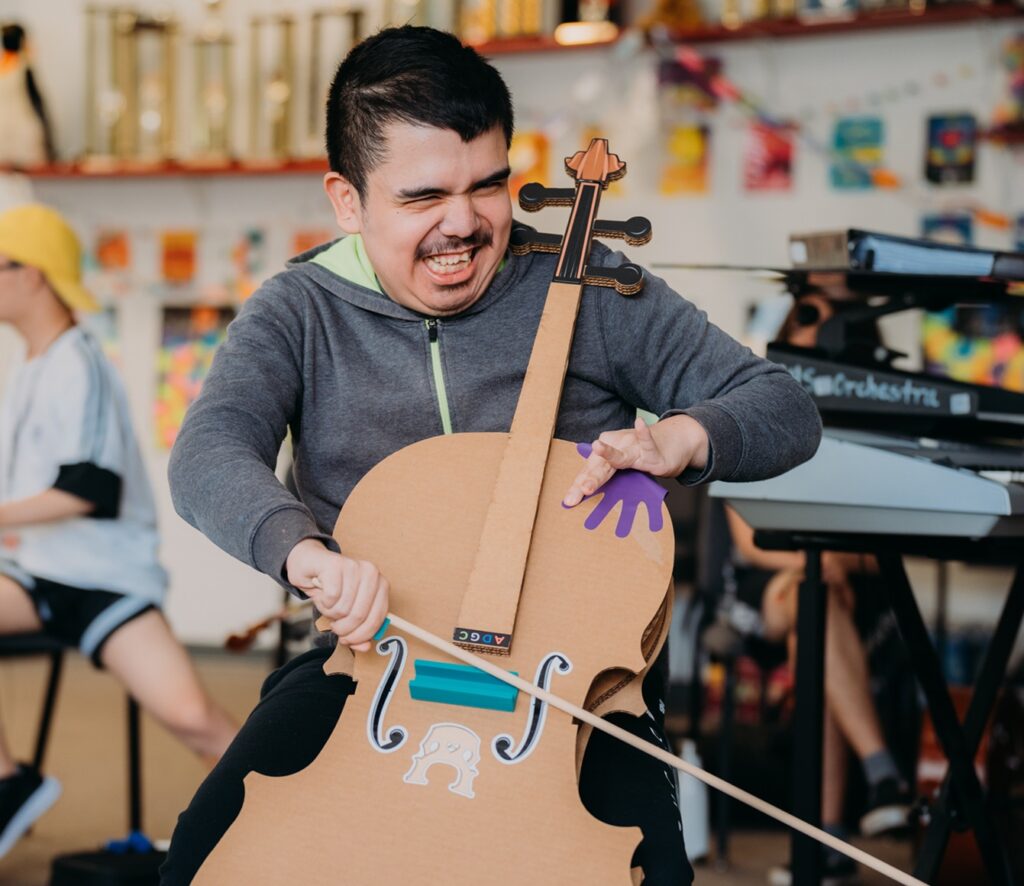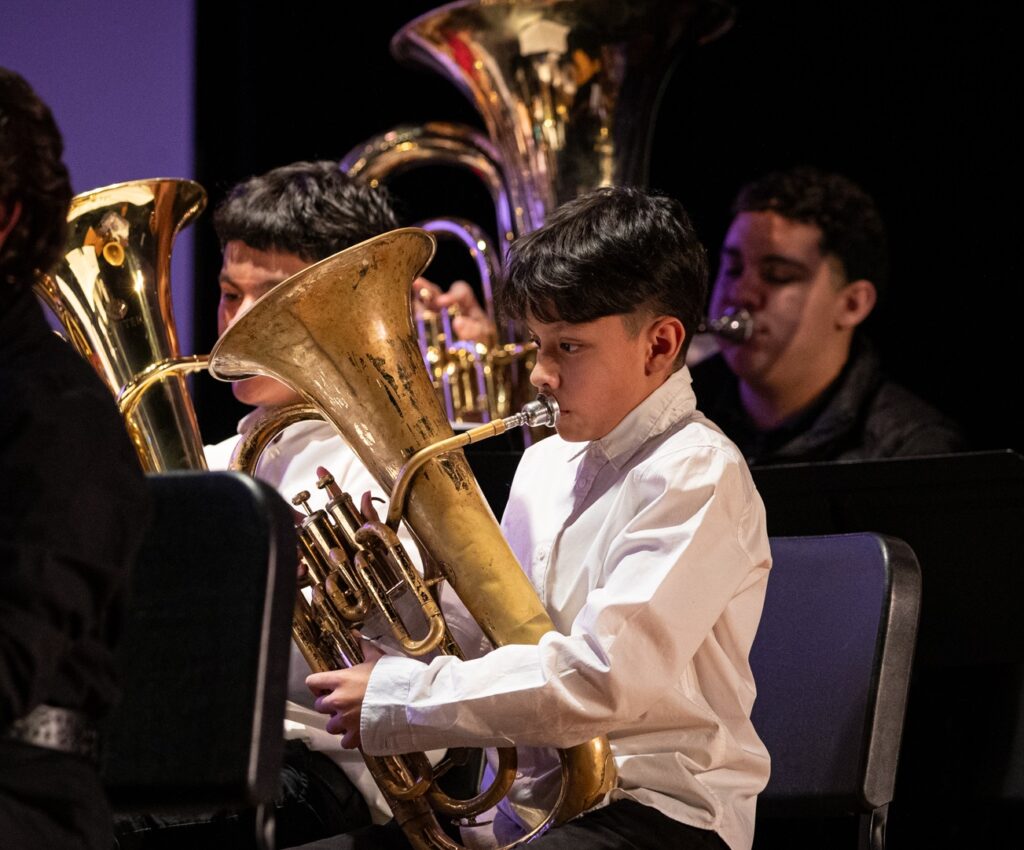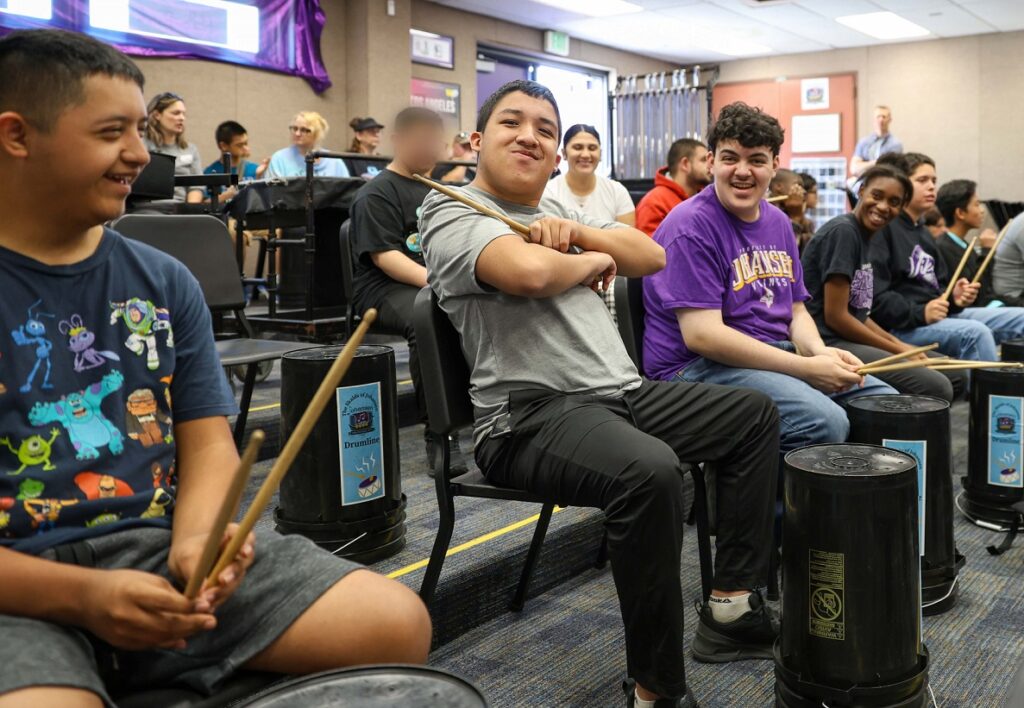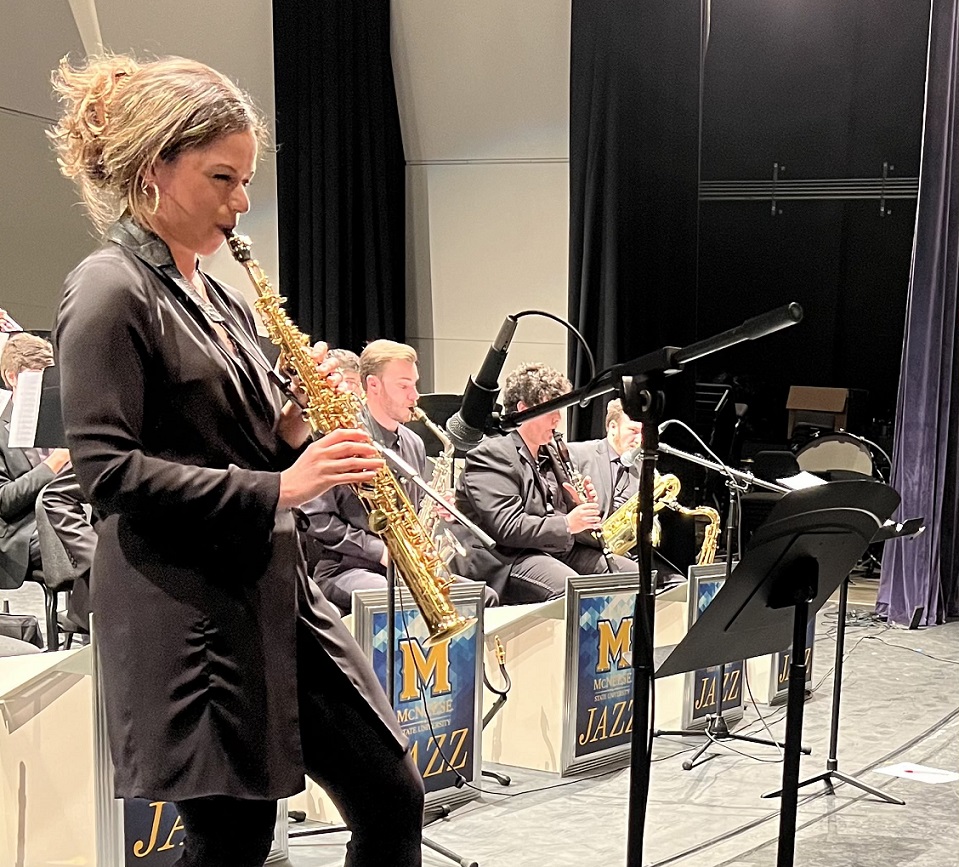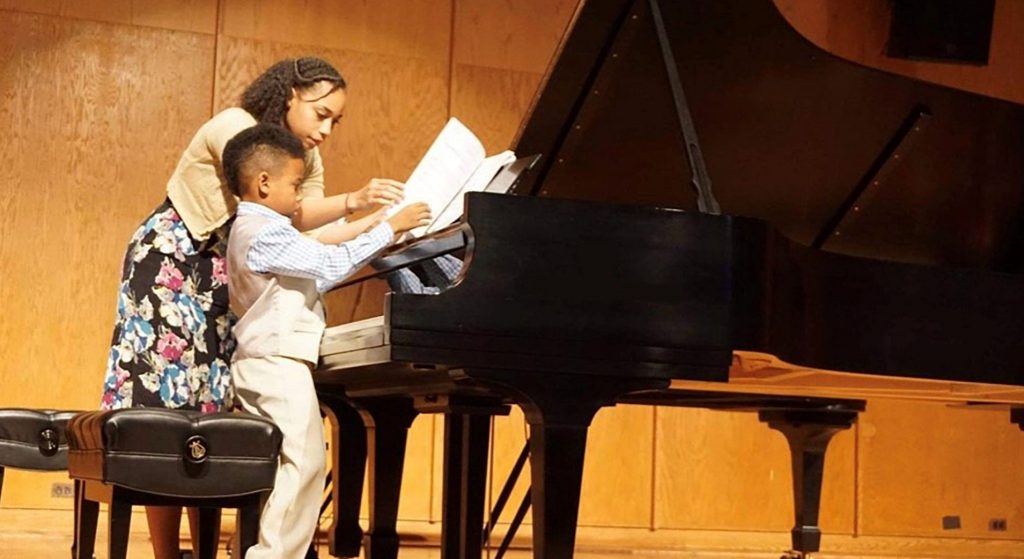Tagged Under:
A Symposium for Women Musicians
How a Girl Scout project became the impetus for an annual all-women honor band concert for states in the Southeast.
What began as a Girl Scout Gold Award project with one of her high school students turned into a 501(c)(3) nonprofit that gathers young female musicians for an honor band that performs an annual concert, fights gender-based inequality in music, and fosters friendship.
In 2021, Kacee Sanders, director of band at DuPont Hadley Middle School in the Nashville area for two years, started working with Mya Foley, who was an exceptionally bright music student from Sanders’ previous job teaching high school. Sanders served as project adviser for the Girl Scout, who graduated in 2023 and is now a freshman at Middle Tennessee State University. Both Foley and Sanders are percussionists, and they noted that percussion instruments stereotypically are for boys. Why should they be?
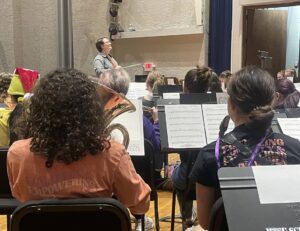
That question led to another one Foley and Sanders discussed: What if that whole section were women? Better yet, what would a whole ensemble of women musicians be like?
“There are some weird band stereotypes that have evolved in some places,” says Sanders, who shares this firm belief with her middle school students: “It’s about what you like and what you want to play!”
Sanders says, “There is no ‘boy instrument,’ and there is no ‘girl instrument.”
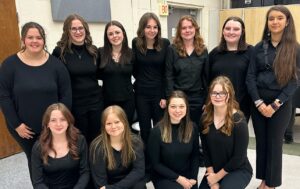
An Honor Band for Women
Foley and Sanders came up with the idea of putting together an honor band — featuring woodwinds, brass and percussion instruments — for young women in their undergraduate college years and teenage girls in high school from states in the Southeast. The participating band members rehearsed their individual parts remotely, and then put on a symposium concert in December 2022. It was intended to be a one-time event, but something special happened there.
“We had this collective moment as we were cleaning up after the concert,” Sanders recalls. “We had this moment sitting around the table, and we said: ‘This was incredible!’ None of us had ever experienced being in a room of only women musicians. We were all overwhelmed with the emotion. We all agreed this can’t be the only time this happens.”
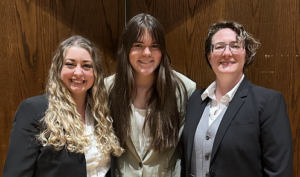
Launching SWIMS
Sanders, Foley and other participants agreed to repeat the symposium. In the summer of 2023, they officially founded the Southeastern Women in Music Symposium (SWIMS). Sanders is the executive director of the young organization. With the proceeds from the first symposium, SWIMS commissioned Ashley Knox, a previously unpublished female composer, to write a song for the next symposium. The group performed Knox’s piece — “Daydream,” which Sanders describes as a beautiful and intense ballad with a grand ending involving every musician — at the December 2023 symposium. SWIMS will only use pieces composed by women, Sanders says, and concerts include of wide mixture of types of songs.
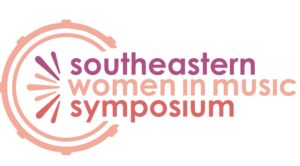
To recruit new members, Sanders and her fellow SWIMS leaders reach out to every high school and university band director in Tennessee, Georgia and Alabama, to ask for recommendations. After registration closes, SWIMS pushes out the music to the young musicians digitally. They rehearse on their own for several months, and don’t play together until the end-of-year symposium.
SWIMS plans to continue to host the symposium every year. Sanders hopes to see more musicians join, and to split the group into two ensembles based on ability level with the top ensemble requiring an audition. Sanders, who is a 2024 Yamaha “40 Under 40” music educator, is optimistic about growth: The first year, the group had about 20 women musicians participate. Last year, it practically tripled to 75.
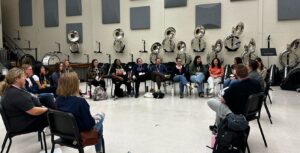
Independence in the Classroom
Sanders’ teaching philosophy is to prod her young musicians — who, in the early adolescence of middle school, are rapidly changing — to maturity and self-reliance. “Within my classroom, I feel that my primary goal is just to be the person to initiate the rehearsal,” she says. “It is my ultimate goal that my students are developing into independent musicians and independent singers.”
One of Sanders’ techniques is grouping students for brief section meetings, which they run themselves. She doesn’t appoint any student leaders; the students themselves collaborate and create a hierarchy, she says.
“This provides students a lot more ownership, and also their maturity as musicians skyrockets,” Sanders says. “It’s so special being able to see them really come into their own as humans. That’s why I love the band room; here, these students find who they are.”
Sanders feels such a passion for her career as a music educator — especially watching the progression and growth of youths, both as musicians and as people.
“Seeing student growth and watching students grow from the first time you interact with them to when they leave your classroom is, by far, the most rewarding part of being a band director,” she says. “Most of the students who are in band will not go on to play professionally and that’s totally OK, but seeing them grow as humans and seeing the incredible people in these chairs … It is so worthwhile to see people really find themselves here.”
The 2024 Southeastern Women in Music Symposium is scheduled for December 13-15, 2024, in Murfreesboro, Tennessee.










